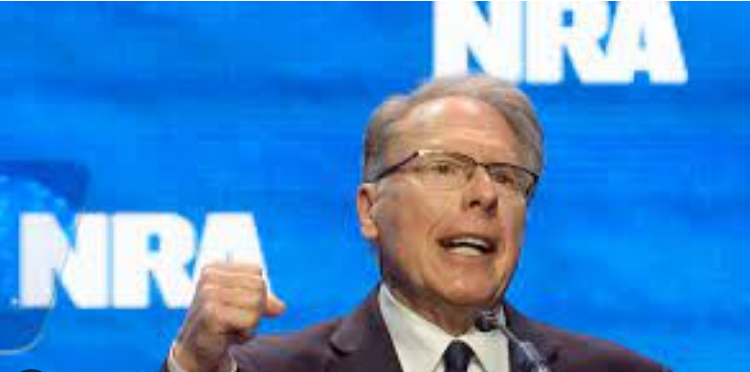Wayne LaPierre, the longstanding head of the National Rifle Association (NRA), recently made headlines as he testified in his New York civil trial. LaPierre found himself at the center of controversy, facing allegations that he misused the NRA’s funds, betraying the trust of its 5 million members by indulging in lavish personal expenditures. This trial, brought forward by New York Attorney General Letitia James, scrutinizes LaPierre’s acceptance of luxury vacations and other benefits, questioning the integrity of his leadership within the influential nonprofit.
The Allegations and Defense
LaPierre’s testimony unfolded in a Manhattan courtroom, where he sought to justify the opulent vacations he accepted from individuals who held lucrative contracts with the NRA. Central to the case is LaPierre’s relationship with Hollywood producer David McKenzie, whose company has been involved in significant business dealings with the NRA. Despite the evident luxury of these trips, including stays on grand yachts and expeditions to exotic locales like the Greek Isles, LaPierre maintained that he did not perceive these as “gifts,” thus not disclosing them on financial forms as required.

The Impact on the NRA
The trial casts a long shadow over LaPierre’s tenure as the NRA’s chief, a period marked by political influence but also by financial instability and internal discord. Under his watch, the NRA has faced dwindling membership, financial deficits, and a scaling back of core programs. Critics argue that LaPierre’s alleged mismanagement and extravagant spending contributed significantly to the organization’s fiscal challenges, diverting funds from essential NRA activities like firearms training, education, and law enforcement initiatives.
The New York Attorney General’s lawsuit against LaPierre and co-defendants underscores a broader concern about the governance of nonprofits and the accountability of their leaders. The state seeks not only to curtail the defendants’ activities within the NRA and other New York-based nonprofits but also to compel restitution for the alleged misallocation of funds. This legal battle highlights the importance of transparency and ethical stewardship in nonprofit leadership, particularly when the organization plays a significant role in public policy and advocacy.
Read More:
- Lawrence: Trump becomes first former President to testify as a defendant in his own trial
- Chris Gethard – A Comedic Take on New Jersey’s Top Stories of 2023
- He’s Mad! Enhanced Social Security Benefits in 2024?!
As the trial progresses, the focus remains on whether LaPierre’s actions and the broader financial practices at the NRA align with the expectations and regulations governing nonprofit organizations. The outcome could have lasting implications for the NRA’s future operations, leadership structure, and its standing among members and supporters. Beyond the immediate legal ramifications, this case prompts a deeper reflection on the standards of accountability to which leaders of influential advocacy groups are held, especially when their decisions have far-reaching consequences for their members and the public discourse.

